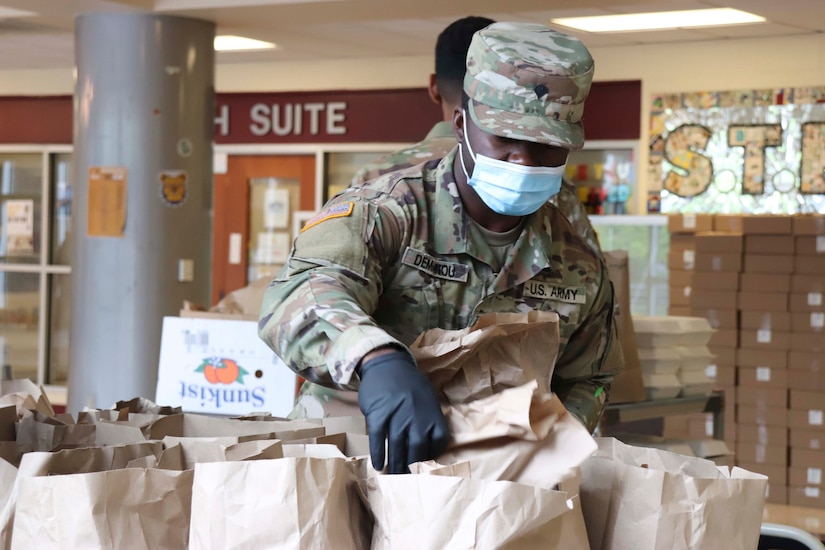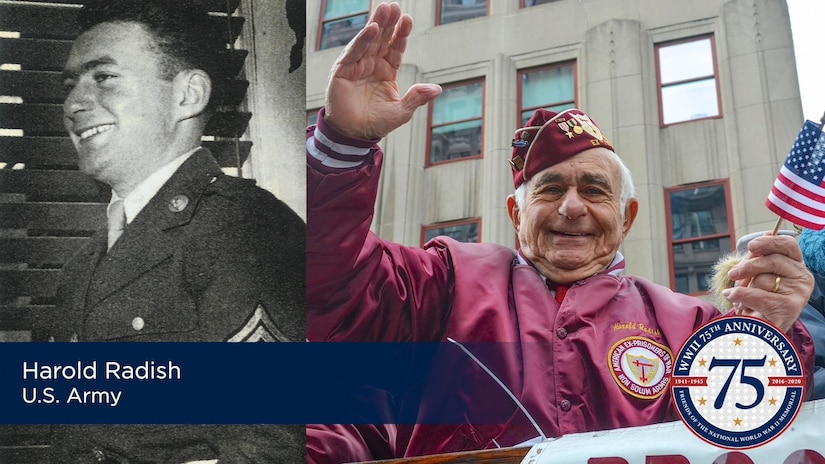May 8, 2020 | BY C. Todd Lopez , DOD News
President Donald J. Trump, Defense Secretary Dr. Mark T.
Esper and Chairman of the Joint Chiefs of Staff Army Gen. Mark A. Milley
commemorated the 75th anniversary of the Allies' victory over Nazi Germany in
Europe at the National World War II Memorial in Washington.
The president and wife Melania laid a wreath at the memorial
at today's event. They also toured the memorial and met veterans in attendance.
"Seventy-five years ago today, the last remnants of the
Nazi regime unconditionally surrendered to the Allied Powers, marking the end
of World War II in Europe," Trump said in an official statement.
"Today, we celebrate the forces of freedom who defeated tyranny and
emerged victorious in that monumental struggle. We pay tribute to those who
served for their service and pause to remember those who gave their last full
measure in defense of the flames of liberty."
On Dec. 7, 1941, the Japanese bombed Pearl Harbor. When the
United States declared war on Japan the following day, the country officially
entered World War II. By Jan. 11, both Germany and Italy had declared war on
the United States, and the U.S. responded in kind, involving the nation in a
global war on two fronts: Europe and Asia.
When the U.S. entered the European conflict in 1941, war had
been raging there for more than 14 months since Nazi Germany invaded Poland in
September 1939. In Europe, the Americans joined with the United Kingdom, the
Soviet Union and other nations to defeat the rise of fascist Germany.
"The campaign to end fascism in the European theater is
a somber reminder of the price of freedom," Trump's statement reads.
"More than 30 million lives were lost and tens of millions more were
shattered in the war. Most of those who perished in Europe were civilians,
including 6 million Jews and millions of others from Poland and the former
Soviet Union."
U.S. participation in Europe resulted in 552,117 American
casualties, with 104,812 killed in action.
"Most of these selfless and heroic warriors had never
known life in a prosperous America," Trump said. "They grew up during
the Great Depression, when America's economic prospects seemed bleak. Yet, they
answered our country's call of duty because they believed in the principles
that lie at the foundation of our nation ... these American heroes would not
relent in their noble efforts until they had liberated all of Europe from the
abhorrent Nazi regime."
The president said fewer than 400,000 of the 16 million
Americans who served during World War II are still alive.
"Their generation — the Greatest Generation — will
never be forgotten," he said. "We are forever grateful for their
immeasurable contributions to the success and prosperity of our nation."
The fighting in Europe ended May 8, 1945 — Victory in Europe
Day — when the Allies formally accepted Germany's unconditional surrender, but
World War II was not yet over. The fighting in the Pacific continued for
another four months. It ended Sept. 2, 1945, when the Japanese signed an
instrument of surrender aboard the USS Missouri.










